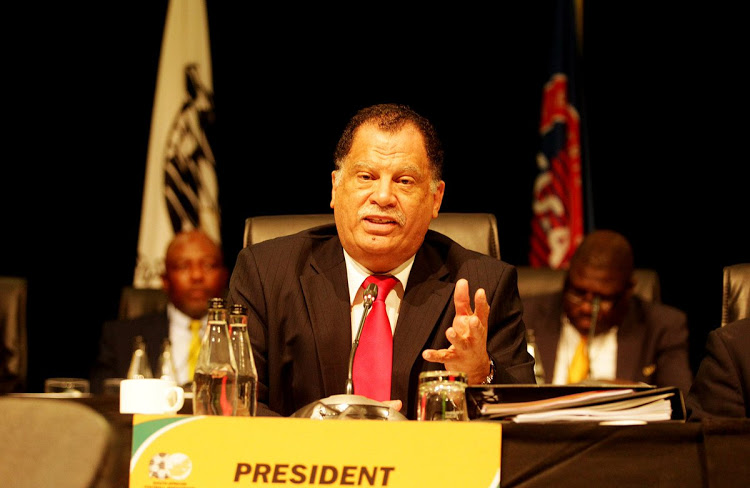Not always in accord with the PSL, the South African Football Association has joined its professional affiliate with all guns blazing in a scathing attack on the Independent Communications Authority of South Africa’s proposed new directives on TV coverage.
What is more, SAFA has reserved an equally strong salvo at national broadcaster SABC, about whom it is claimed in a scathing statement that the new restrictions are principally meant to their benefit.
PSL’s iron-willed chairperson, Irvin “The Iron Duke” Khoza, has already asserted that ICASA’s proposals would mortally threaten the League’s future and the “exclusive” TV deal with SuperSport from which the League acquires the lion’s share of its current R938 million annual revenue.
It is through the deal with SuperSport, says Khoza, that players’ wages, among numerous other benefits for soccer in South Africa, have been revolutionised via the yearly R31 million grants to all the Absa Premiership clubs, as well as the monthly R500 000 windfall for teams in the National First Division.
SAFA’s situation is altogether different, with no huge financial input in its budget from Bafana Bafana and other national teams’ games being televised, but in some respects it would make the national controlling body’s precarious financial situation even worse, with the SABC effectively being able to name their own price for the right to televise games featuring teams under their aegis.
And the impasse between SAFA and the SABC recently reached a flashpoint when the national broadcaster offered what SAFA described “a pitiful R10 million” to televise key Bafana matches, with no deal ultimately being concluded and key games of South African soccer’s flagship team not shown on open TV.
Both SAFA and the PSL now claim that the mooted fresh proposals regarding the televising of soccer games – and those of other sporting codes for that matter – would have a crippling effect, with the implications not understood by ICASA.
If ICASA do have an ace up their sleeve in the escalating controversy it is that a large proportion of South Africa’s 60 million or so population cannot afford the purchase of decoders and their monthly subscriptions – even with limited rates being introduced – and it is the most needy who are being deprived of watching sport on TV.
But as one official claimed, “in this world you get nothing for nothing, with the dilemma resting primarily in the hands of the SABC who should be in a position to offer reasonable amounts for the right to televise sporting contests, particularly those of major national interest – even if the figures do not match those of financial moguls like SuperSport.”
The PSL also claim it has made concessions regarding the exclusive rights to its matches by allowing the SABC to televise major derby games and some semi-finals and finals.
And SAFA claims when it offered SABC the right to televise matches of national teams – not including Bafana – without a fee being paid, the offer was ignored.
ICASA, on the other hand, suggests the soccer and TV authorities need to cater for the needs of the poorer army of followers – and some form of compromise should be reached for the less wealthy to figuratively remain “in the picture.”
























